“Celebrating Ashadamasam: A Festival of Culture, Tradition, and Gorintaku at TJIS”
Celebrating Ashadamasam with Gorintaku at TJIS:”
At The Jain International School (TJIS), the month of Ashadamasam marks a special time of the year, steeped in cultural significance and traditional practices. The celebration of Gorintaku, a festival that honors the age-old tradition of applying mehendi, is an event that brings together students, teachers, and parents in a beautiful blend of art, culture, and heritage. This year, TJIS once again embraced this vibrant festival, ensuring that the values of tradition and community were passed on to the younger generation.
The Significance of Ashadamasam and Gorintaku
Celebrating Ashadamasam with Gorintaku at TJIS. Ashadamasam is the fourth month of the Telugu calendar, traditionally associated with the monsoon season and the celebration of various festivals. For many families, it is a time of reflection, rejuvenation, and reconnection with cultural practices that have been passed down for generations. Among these festivals, Gorintaku—the application of mehendi or henna on hands and feet—holds a place of pride, especially for women and young girls.
Gorintaku is more than just a display of beautiful patterns and intricate designs. It represents the onset of the monsoon season and serves as a symbol of prosperity, beauty, and joy. It is often believed that the darker the mehendi stain, the deeper the affection from loved ones. Traditionally, women gather during this festival to apply mehendi, sing songs, and celebrate the unity and bonds of sisterhood.
At TJIS, the celebration of Gorintaku aims to revive and cherish these timeless values, ensuring that students remain connected to their cultural roots while developing a deeper understanding of the importance of tradition. Celebrating Ashadamasam with Gorintaku at TJIS.
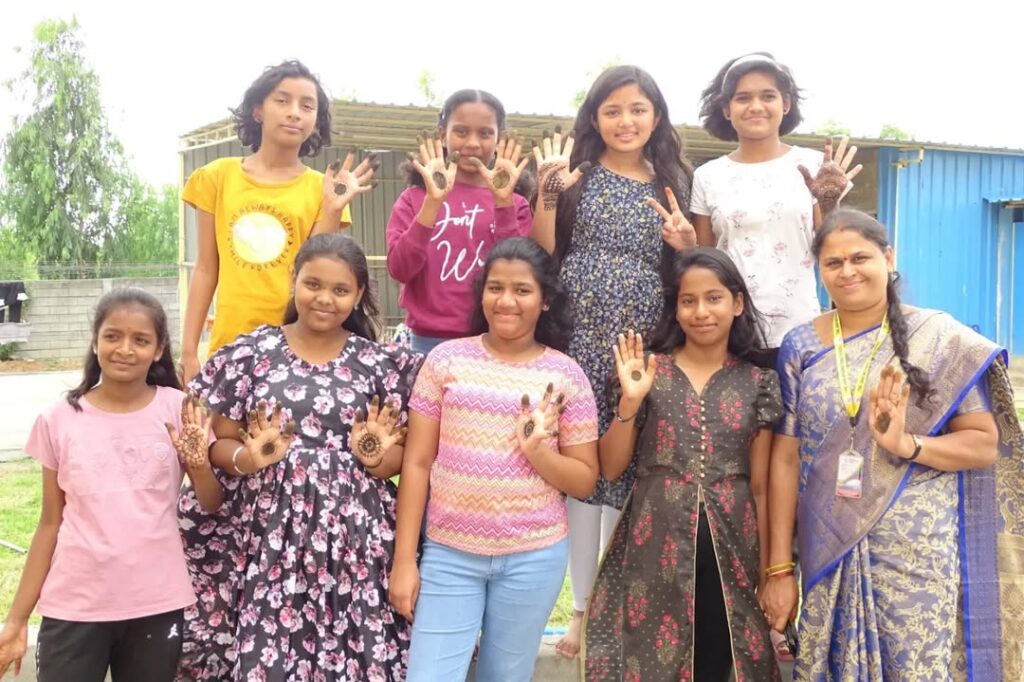
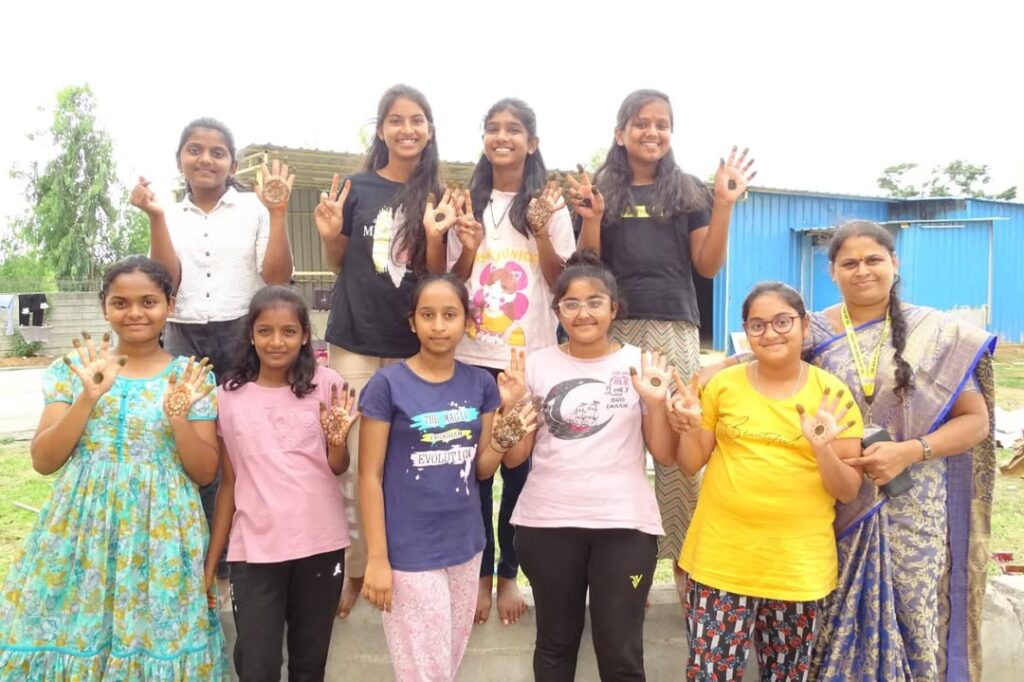
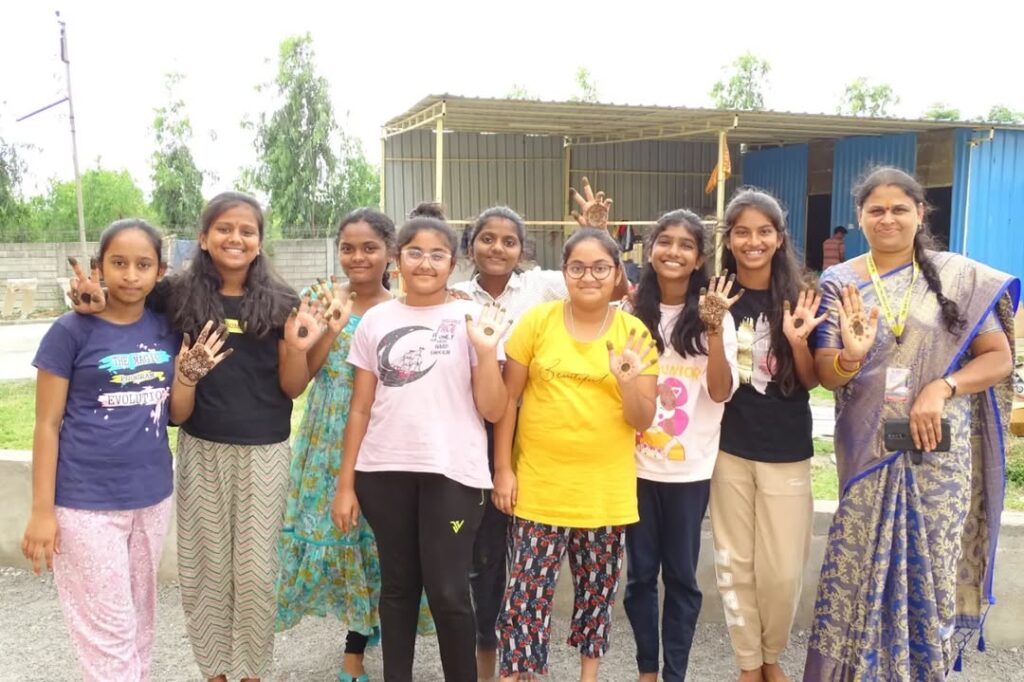
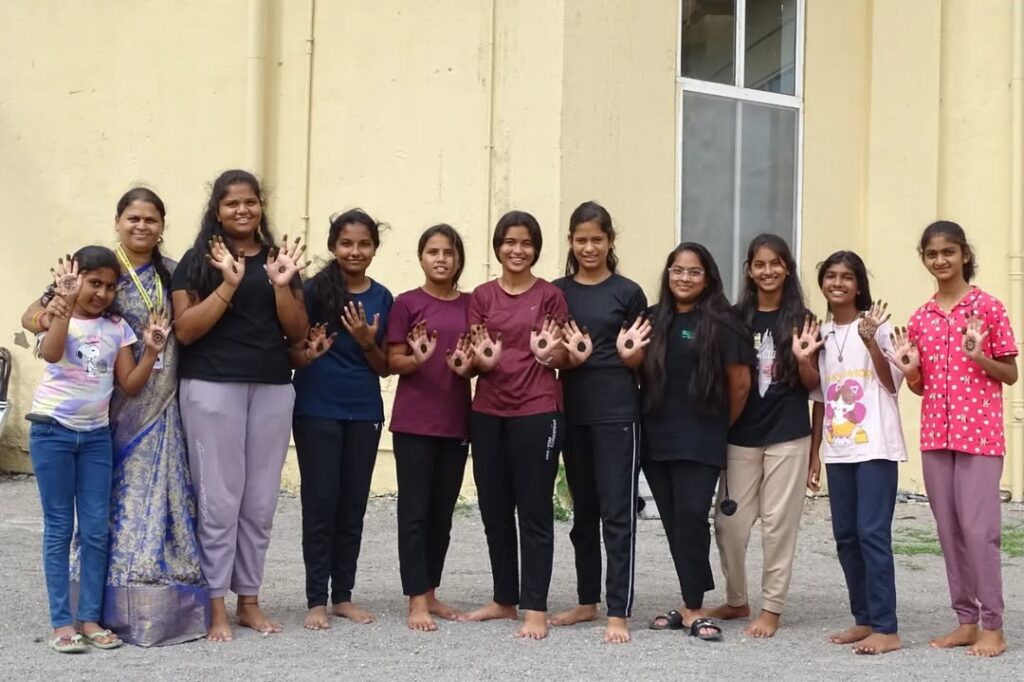
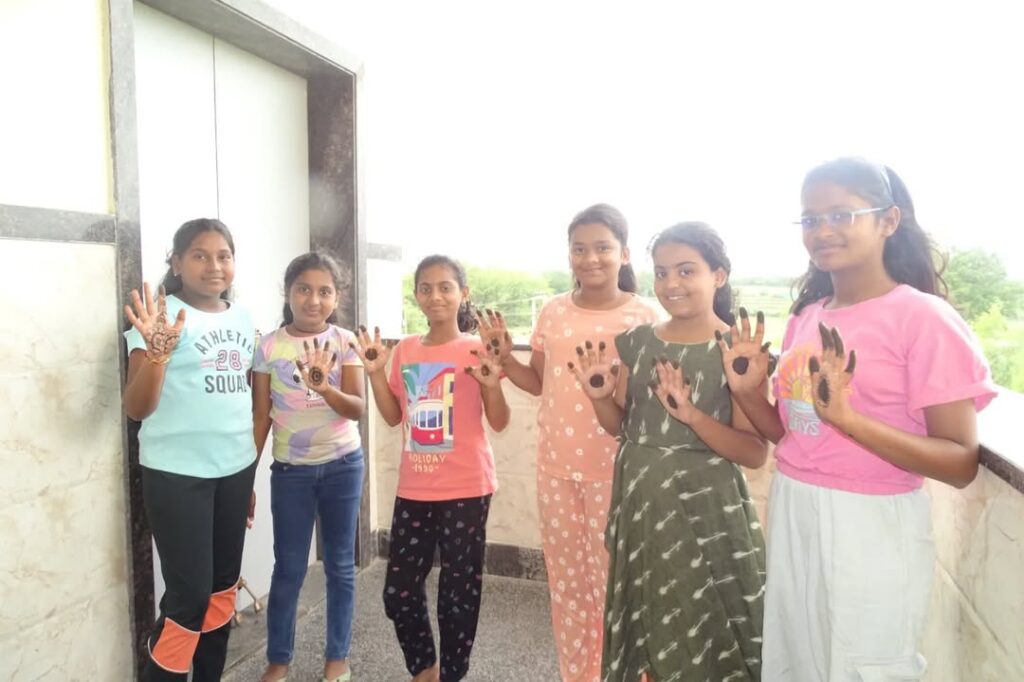
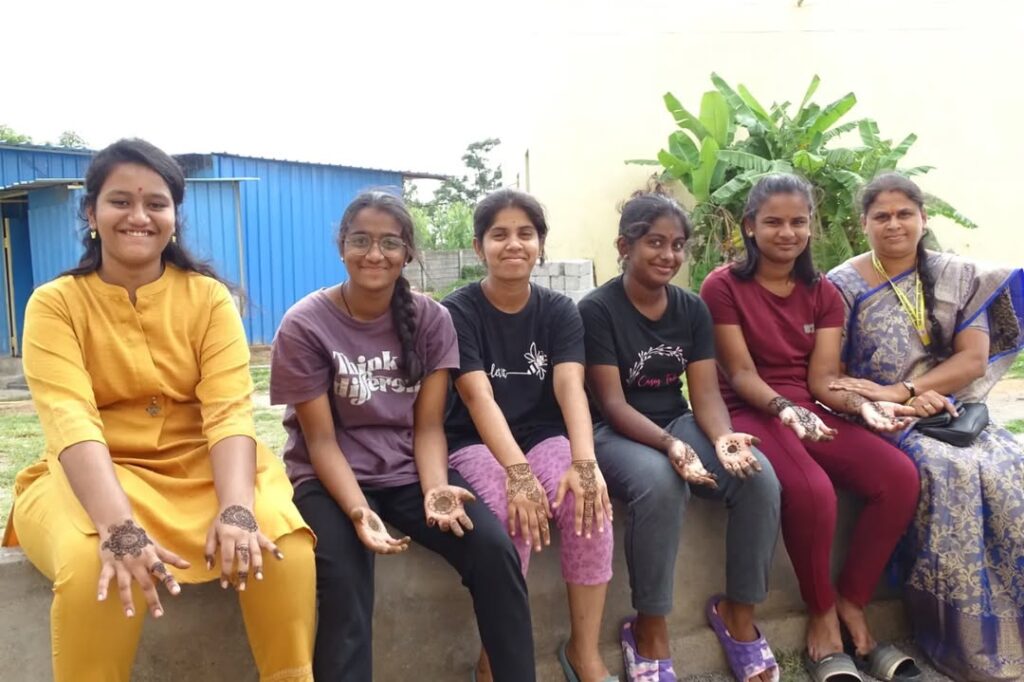
Embracing Tradition at TJIS
The Gorintaku festival at TJIS was celebrated with enthusiasm and joy. The campus was adorned with traditional decorations, creating an ambiance of festivity and celebration. Celebrating Ashadamasam with Gorintaku at TJIS. Students, dressed in vibrant traditional attire, came together to participate in the mehendi application, as teachers guided them through the significance of the designs and motifs.
The school’s aim was to not only allow students to experience the artistic side of mehendi application but also to teach them the cultural symbolism behind it. The intricate patterns, from flowers to peacocks and leaves, carry meanings of fertility, love, and good fortune.
Parents, students, and staff gathered together in the spirit of unity, reinforcing the values of community and cultural appreciation. The students enjoyed the hands-on experience of applying mehendi, expressing their creativity while understanding the deeper meaning attached to the practice. Celebrating Ashadamasam with Gorintaku at TJIS.
Gorintaku: A Celebration of Art and Culture
Mehendi has been an integral part of Indian culture for centuries, with its origins tracing back to ancient civilizations. It is traditionally associated with joyous occasions such as weddings, festivals, and celebrations, where the application of mehendi marks moments of happiness and togetherness. For the young students at TJIS, this festival served as an opportunity to learn about the cultural history of mehendi, while also developing an appreciation for its artistic value.
Mehendi is often considered a form of temporary body art, but it is also an expression of cultural identity. By involving the students in this activity, TJIS ensured that they gained a deeper understanding of the symbolism and artistry behind the designs. From the selection of the motifs to the precision of the application, the children embraced the challenge and took pride in showcasing their final creations.
The act of applying mehendi is often done in a communal setting, where women gather to share stories, sing songs, and strengthen bonds. This sense of togetherness was replicated at TJIS, where students not only practiced their mehendi skills but also engaged in storytelling and discussions about the festival’s significance.
Strengthening Bonds with Tradition
As TJIS continues to strive for academic excellence, it also places a strong emphasis on holistic development, where cultural education plays a vital role. Festivals like Gorintaku offer students an opportunity to connect with their heritage, understand their roots, and develop respect for traditional practices.
Celebrating Ashadamasam with Gorintaku at TJIS. In today’s fast-paced world, where the younger generation is often distanced from cultural traditions, such celebrations serve as a bridge, helping students reconnect with their cultural identity. The Gorintaku festival at TJIS was not just a fun-filled event but also a learning experience that allowed students to understand the importance of staying connected to their roots.
By celebrating festivals like Gorintaku, TJIS fosters an environment where cultural awareness is valued, and traditions are preserved for future generations. The students walked away with a sense of pride in their heritage, realizing the beauty and significance of cultural practices that have stood the test of time.
A Journey Through the Art of Mehendi
One of the most exciting aspects of the Gorintaku celebration was the hands-on mehendi session, where students were encouraged to create their own designs. From delicate floral patterns to elaborate motifs, the children were guided by teachers and expert artists who explained the cultural relevance of each design.
This activity not only allowed the students to express their creativity but also helped them develop an appreciation for the fine details involved in the mehendi application process. The children learned how the art form has evolved over time, adapting to modern trends while staying true to its traditional roots.
The session culminated with the students proudly showcasing their mehendi-covered hands, excited to share their newfound skills with their families. The atmosphere was filled with joy and excitement, as the students eagerly compared their designs and admired each other’s creativity. Celebrating Ashadamasam with Gorintaku at TJIS.
Creating Memories and Preserving Culture
The Gorintaku celebration at TJIS was a heartwarming event that brought students, teachers, and parents together in a shared experience of cultural celebration. It was an opportunity to not only celebrate the beauty of mehendi but also to pass on cultural values that strengthen the bond between tradition and modernity.
As the students engaged in this hands-on activity, they were also creating memories that will stay with them for a lifetime. The festival allowed them to experience firsthand the joy and pride that comes from celebrating one’s cultural heritage. At TJIS, the celebration of Ashadamasam and Gorintaku is not just about following rituals but about instilling a sense of belonging and respect for traditions in the hearts of its students.
Conclusion
The Ashadamasam Gorintaku celebration at TJIS was a vivid reminder of the beauty of tradition and the importance of staying connected to cultural roots. By engaging students in the timeless art of mehendi, TJIS not only celebrated the essence of the festival but also created a space where students could appreciate the significance of cultural practices. Celebrating Ashadamasam with Gorintaku at TJIS.
This festival, which emphasizes the unity of community, tradition, and art, left a lasting impression on the young students, ensuring that they walk away with a deeper understanding of their heritage. As TJIS continues to celebrate such festivals, it reinforces the values of culture, identity, and community among its students, nurturing them to become responsible and culturally aware individuals.
